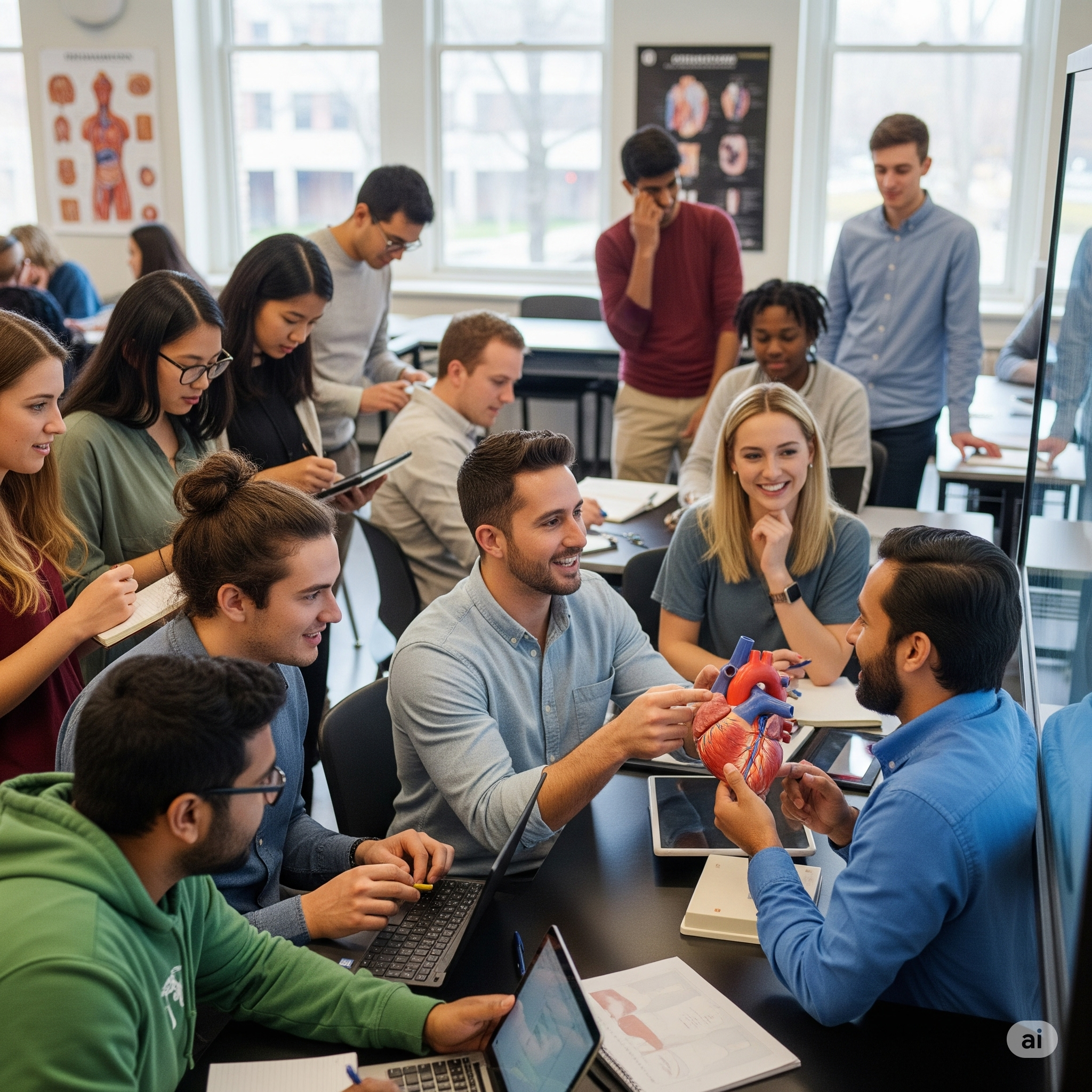
How Focusing on Real Education Can Benefit Students in All Aspects of Life
New Delhi, India – 2025
In a rapidly evolving world, education must transcend the classroom and impact every aspect of a student’s life. The National Education Policy (NEP) 2020 aims to redefine what it means to be educated, focusing on real-world skills, critical thinking, and holistic development. Here’s how this transformative approach can benefit students not just academically but socially, emotionally, and professionally.
The Meaning of Real Education
1. Beyond Exams and Grades:
For too long, education has been synonymous with rote learning and exam scores. Real education is about understanding, curiosity, and the ability to apply knowledge in diverse scenarios. It’s about equipping students with tools to adapt to challenges, not just memorize facts for a test.
2. Life-Ready, Not Just Job-Ready:
Real education doesn’t prepare students for just one career path—it prepares them for a lifetime of opportunities. This means fostering skills like problem-solving, communication, and teamwork, which are essential in every walk of life, whether personal or professional.
Holistic Development: Nurturing Every Aspect of Life
3. Emotional Intelligence and Resilience:
The NEP emphasizes emotional intelligence (EQ) as much as intellectual abilities (IQ). By teaching students how to manage emotions, build relationships, and cope with setbacks, schools prepare them to handle the pressures of modern life with resilience and confidence.
4. Physical and Mental Well-Being:
Physical education, mindfulness practices, and a balanced workload are integral to the NEP’s framework. These components ensure that students develop healthy habits and prioritize mental well-being, which are crucial for leading a balanced life.
Real Education for the Real World
5. Skills for the Future:
As the job market evolves, the ability to learn, unlearn, and relearn is invaluable. Real education emphasizes adaptability through critical thinking, creativity, and digital literacy, ensuring students are equipped to excel in roles that don’t even exist yet.
6. Financial and Ethical Literacy:
Education systems that focus on real-world skills teach students practical knowledge, such as managing finances and understanding ethical dilemmas. These skills empower them to make informed decisions in their personal and professional lives.
Building Better Citizens
7. Civic Responsibility and Social Awareness:
Real education encourages students to understand their role in society. Through project-based learning and community involvement, they gain a deeper appreciation of societal issues and develop a sense of responsibility toward the world around them.
8. Multidisciplinary Learning:
The NEP’s emphasis on multidisciplinary education allows students to explore diverse interests. This approach nurtures well-rounded individuals who can connect ideas from various fields, fostering innovation and creativity.
Real-Life Applications of Real Education
9. Personal Fulfillment:
When students are encouraged to pursue subjects they are passionate about, they are more likely to find fulfillment in their careers and personal lives. Real education helps them align their interests with meaningful pursuits.
10. Professional Success:
Employers increasingly value skills like leadership, adaptability, and critical thinking over technical knowledge alone. Real education focuses on these transferable skills, ensuring students are prepared for diverse opportunities.
Examples of Change in Action
Schools across India are adopting the NEP’s approach with innovative programs. In Delhi, schools have introduced entrepreneurship modules, where students create and manage their own small businesses. Meanwhile, rural schools in Tamil Nadu focus on sustainable farming techniques, teaching students real-world skills while connecting them to their cultural roots. These examples highlight how real education prepares students for life beyond the classroom.
Conclusion: Education for a Lifetime
Real education, as envisioned by the NEP, is about more than preparing students for exams or jobs—it’s about preparing them for life. By fostering emotional resilience, practical skills, and a deep sense of responsibility, it ensures that students thrive in every aspect of their lives.
This shift toward real education represents a brighter, more inclusive future where students aren’t just workers or graduates but innovators, leaders, and compassionate citizens who can shape a better world for all.




